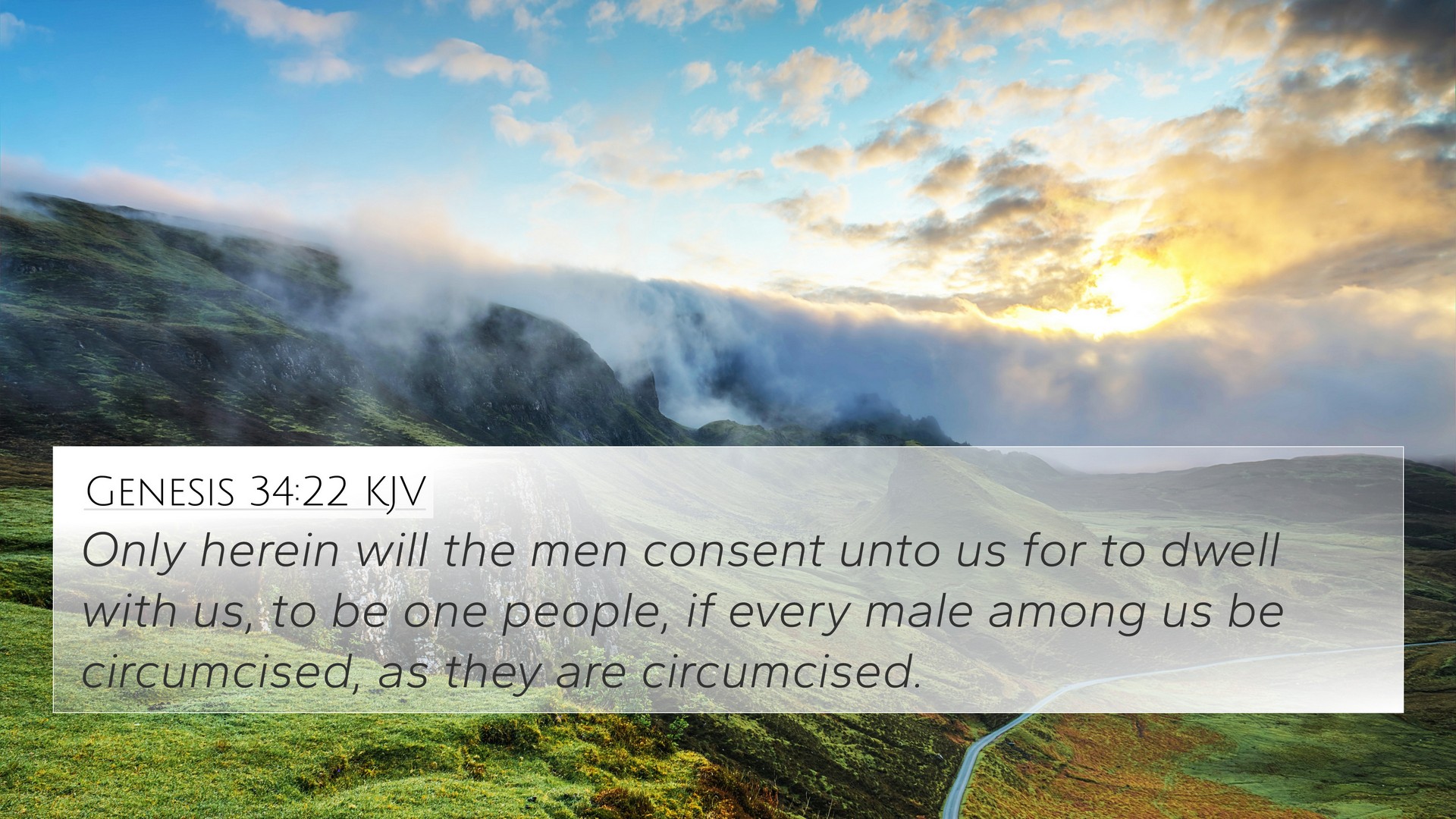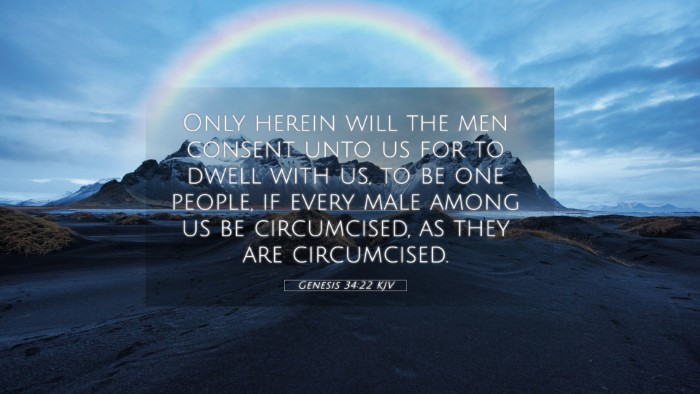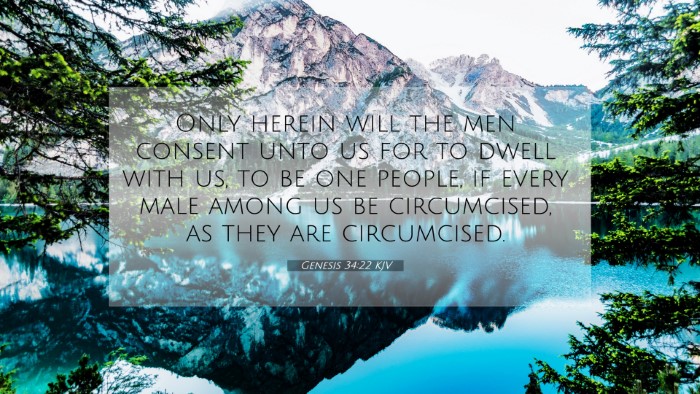Understanding Genesis 34:22
Genesis 34:22 details a pivotal moment involving the sons of Jacob and the city of Shechem. The verse underscores the negotiations made by the sons of Jacob following the aftermath of an egregious act committed against their sister, Dinah. This commentary seeks to unfold the meanings encapsulated within this verse, bridging insights from renowned public domain commentaries such as Matthew Henry, Albert Barnes, and Adam Clarke.
Verse Context
In examining Genesis 34:22, it is essential to understand the historical and cultural context surrounding the events. Dinah, the daughter of Leah and Jacob, was taken and defiled by Shechem, the son of Hamor. Her brothers, particularly Simeon and Levi, wrought vengeance upon the city of Shechem after the men agreed to circumcision as a condition for marrying Dinah.
Verse Analysis
The verse reads:
Genesis 34:22 (KJV): "Only herein will the men consent unto us for to dwell with us, to be one people, if every male among us be circumcised, as they are circumcised."
Key Insights
- Condition for Unity: The sons of Jacob propose circumcision as a means of integrating Shechem’s people into their family, showcasing the cultural significance of this act within the Abrahamic covenant.
- Manipulation of Circumcision: Matthew Henry emphasizes that the act of circumcision, while a holy covenant, was used deceitfully by Jacob’s sons to fulfill their vengeful purpose.
- Faith and Covenant: Albert Barnes notes that while circumcision implies faithfulness to God's covenant, the sons’ motivations depict a contrast where the divine significance is overshadowed by human vengeance.
- Sign of Acceptance: Adam Clarke suggests that circumcision symbolized acceptance into the family of God, which Jacob’s sons twisted for revenge rather than unity.
Cross-Referencing Biblical Texts
Genesis 34:22 interlinks with various scriptures, creating a network of themes related to covenant, violence, and moral dilemmas. Here are notable cross-references:
- Genesis 17:10-14 - The covenant of circumcision is initially established with Abraham.
- Exodus 4:24-26 - The importance of the covenant sign and its implications in God’s eyes.
- Deuteronomy 10:16 - A call for the circumcision of hearts, contrasting physical and spiritual commitment.
- Joshua 5:2-9 - Joshua's renewal of the covenant through circumcision before entering the Promised Land.
- Romans 2:28-29 - Paul speaks of true circumcision as a matter of the heart, not merely the flesh.
- Matthew 26:52 - Jesus’ teaching on the consequences of violence, resonating with the actions of Jacob's sons.
- Ephesians 2:11-13 - Discusses the unity of believers and the breaking down of walls between peoples.
Thematic Connections
The events surrounding Genesis 34:22 provide rich material for thematic Bible verse connections:
- Vengeance and Forgiveness: The actions of Jacob's sons highlight human tendencies toward vengeance, in contrast to biblical calls for forgiveness (e.g., Matthew 6:14-15).
- The Importance of Covenant: The covenant of circumcision serves as both a physical and spiritual parallel throughout Scripture.
- Unity Among Believers: The request for integrating Shechem’s people echoes New Testament teachings on unity among different tribes and nations (Galatians 3:28).
Concluding Thoughts
Genesis 34:22 allows for deep explorations into the nuances of human interaction with divine commandments. The case of Dinah and her brothers evokes questions of morality, family loyalty, and the severe consequences of revenge. Understanding this verse through cross-referencing provides clarity and depth, enabling readers to navigate the complexities of biblical narratives and their implications for faith today.


